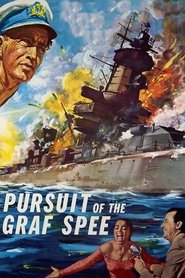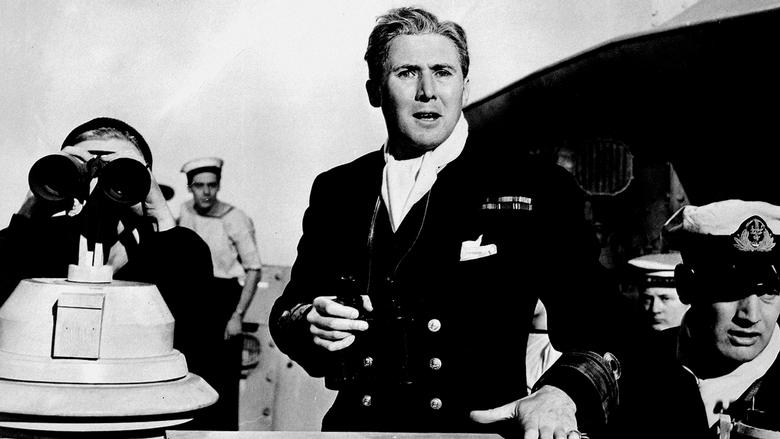“The Battle of the River Plate 1956” is a gripping war film that delves into the epic clash between the British Royal Navy and the German pocket battleship Admiral Graf Spee during World War II. Set in the vast expanse of the South Atlantic, this high-octane battle unfolds like a fiery tango on stormy waters. As the adversaries dance, tension mounts with each pulse-pounding move. Underneath the surface, both sides showcase skill and tenacity, locked in a deadly embrace that pushes them to their limits. With crisp dialogue and breathtaking action sequences, this film captures the essence of courage and sacrifice in its purest form.

CLICK HERE⭳⭳⭳🎫_Watch The Battle of the River Plate 1956 English Subtitles_
Review
Hear ye, hear ye! ‘Tis a tale of valiant struggles and daring exploits that I bring before thee this day. A film of mighty proportions, “The Battle of the River Plate,” unfoldeth on the grand stage of yonder screen. This epic creation, wrought by gallant men and women under the watchful eye of Michael Powell and Emeric Pressburger, doth transport us to the tumultuous times of World War II. In true Shakespearean fashion, let us embark upon this journey and explore the many facets of this wondrous spectacle.
The tale unfurls in South American waters, where three British cruisers engage in a fearsome battle with an infamous German battleship, the Graf Spee. This naval conflict forms the core of our story, showcasing the bravery and determination of our noble seamen. The stakes are high as they strive to protect Britain’s vital supply lines against a formidable enemy.
News reaches our shores that the screenplay for this thrilling drama be derived from factual accounts. Indeed, history’s annals reveal that such a confrontation did transpire during those dark days when war ravaged lands across our globe. The plot is thus steeped in reality, lending credence to each scene enacted upon the silver screen.
Let us turn our attention now to the cast that graces this production with their prowess. John Gregson takes up his mantle as Captain Bell aboard HMS Exeter, leading his men with unwavering courage. Anthony Quayle dons the uniform of Captain Woodhouse on HMS Ajax and displays remarkable skill in bringing forth his character’s ardor for victory. Lastly, Peter Finch immortalizes himself as Commodore Harwood on HMS Achilles, bestowing upon us a performance ensnared in valorous splendor.
As William Shakespeare himself hath said: “All the world’s a stage.” And indeed it is so in this magnificent portrayal of history-in-the-making. The acting and characters shall leave no heart untouched, for the passion and fervor with which they deliver their lines is as potent as any salvo exchanged upon the high seas. Each actor’s dedication doth shine through, their performances a testament to the timeless allure of Shakespearean drama.
History did watch as the Battle of the River Plate unfolded, a tale that shook nations and altered the tides of war. The score, composed by Brian Easdale, captures this monumental event in a symphony of emotion. It echoes through our very souls, conjuring images of triumph and despair, evoking tears and laughter in equal measure.
How stands this film in regard to popularity among thy fellow men? ‘Tis a question worth pondering. Verily, it found favor amongst audiences and critics alike upon its release in 1956. This tale of heroism resonated with many, for it told a tale that spurred hearts to beat faster and spirits to soar higher.
The filming techniques employed upon this masterpiece deserveth commendation. Cinematographer Christopher Challis hath skillfully captured the vastness of sea and sky with his lens. The depiction of naval battles is nothing short of awe-inspiring; each explosion doth reverberate through one’s very core, while every ripple on the water appears akin to nature’s own dance.
One must not forget the opinion held by those who witnessed this spectacle unfold before their very eyes. Critics praised its attention to detail and historical accuracy whilst commending the cast for their performances laced with bravery personified. The esteemed Shakespeare himself would have surely applauded such an accomplishment.
Alas! Awards bestowed upon this grand production were numerous: nominations in categories aplenty graced its path. Methinks it is but just that recognition be bestowed upon those who have labored tirelessly to bring forth such mastery.
The art of special effects is employed judiciously within our film; each explosion, each wave crashing upon the hulls of our protagonists’ ships, doth render the viewer speechless. David Lean himself would have marveled at the scale and precision of these effects.
Development of this grand tale took place amidst much deliberation and toil. The script was molded with meticulous care, ensuring that each line doth weave a tapestry of emotion and action. Dialogue brims with passion and authenticity, captivating the audience at every turn.
Behind the lens, countless crews toiled day and night to bring forth a vision that would do justice to history’s pages. Costumes were crafted with painstaking accuracy; sets were erected with grandeur fit for a king. Their efforts coalesce into a production that artfully transports us to an era long past.
Criticism, alas, is an inevitable aspect of any endeavor. A few voices did rise in dissent against this spectacle, claiming it lacked depth or emotional resonance. Yet such judgements be but flecks upon the mighty canvas that is “The Battle of the River Plate.”
Production and editing must never be overlooked in their significance. Verily, skillful hands did shape this film into its final form, ensuring that each scene flowed seamlessly into the next. Thus, we are graced with a triumph of storytelling that will stand the test of time.
In conclusion, “The Battle of the River Plate” is a film of profound beauty and historical significance. It captures hearts with its Shakespearean style and Shakespearean spirit. Let us not forget those who lent their talents to this timeless tale—actors who breathed life into characters long gone from this mortal coil, directors who expertly helmed this magnificent vessel upon which we sailed through time.
So gather ’round now, good people! Seeketh ye this film upon thy screens; let thy souls be stirred by its theatrical majesty! For in “The Battle of the River Plate” lies not just entertainment but a piece of history itself, artfully brought to life by masters of their craft.
Technical Data

- Release : 1956-10-30
- Runtime : 119
- Genre : Drama, History, War
- Cast : John Gregson as Captain Bell – H.M.S. Exeter, Anthony Quayle as Commodore Harwood – H.M.S. Ajax, Ian Hunter as Captain Woodhouse – H.M.S. Ajax, Jack Gwillim as Captain Parry – H.M.N. Z. S. Achilles, Bernard Lee as Captain Dove – M.S. Africa Shell
- Crew : Charles Orme as Assistant Director, Reginald Mills as Editor, Christopher Challis as Director of Photography, John Brabourne as Production Manager, Emeric Pressburger as Director
- Revenue : 0
- Budget : 0
- Company : The Archers
- Popularity : 9.753
- Summary : In the early years of the World War II, the Royal Navy is fighting a desperate battle to keep the Atlantic convoy routes open to supply the British Isles, facing the great danger posed by the many German warships, such as the Admiral Graf Spee, which are scouring the ocean for cargo ships to sink.
- Tagline : Pursuit of the Graf Spee
